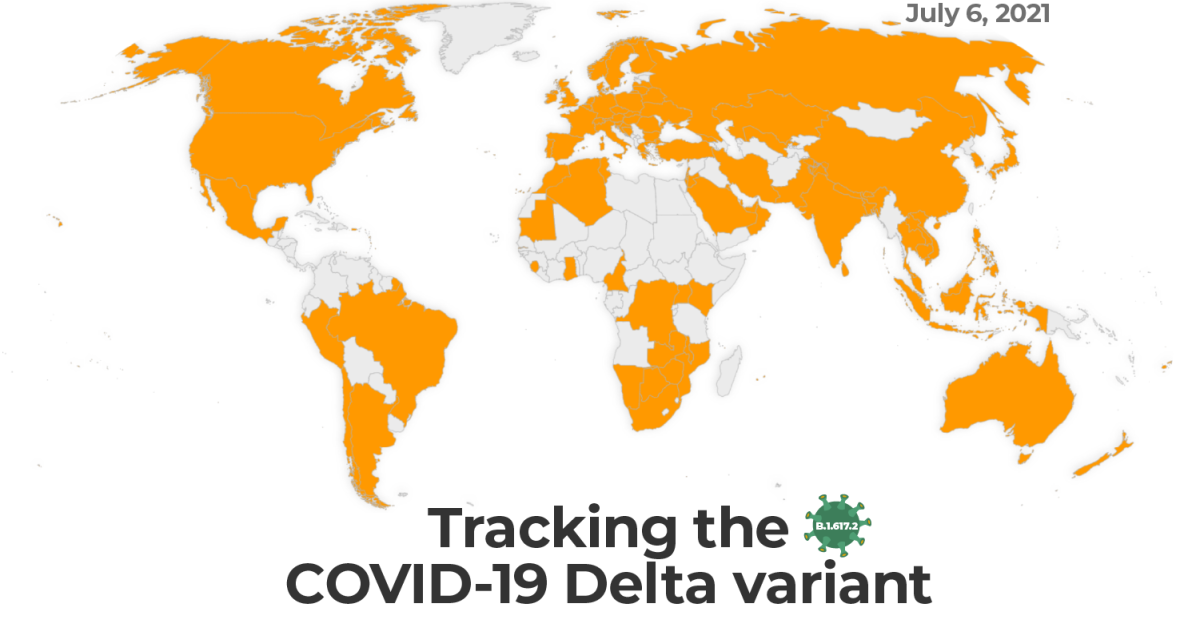By Oghale Mafuru
Nigeria is currently battling with a new variant of COVID-19 pandemic, called ‘Delta Variant’, which is considered more deadly and contagious amidst rising cases of the virus. On its official Twitter handle on Tuesday, the Nigeria Centre for Disease Control (NCDC) disclosed that it recorded 213 additional new cases of COVID-19, bringing the total number of infections in the country to 171, 324, as of July 26, 2021.
The NCDC said having tested more than 2.4 million samples for the virus it had detected 10 COVID-19 Delta variants, recognised by the World Health Organisation (WHO) as a variant of concern, given its increased transmissibility.
According to the Director General of the NCDC, Dr. Chikwe Ihekweazu, the Delta Variant spreads faster and calls for strict adherence to precautionary measures. The DG, who lamented the rise of confirmed cases, also noted that the situation is putting a strain on existing resources.
No doubt the country is frantically trying to prevent a third wave of the pandemic because of the possible effect on the economy. Currently, businesses adversely impacted by COVID-19 and its aftermath are still trying to recover. For most business, a likely third wave will hamper the progress already made.
A recent report by the National Bureau of Statistics has shown that 58 percent of households in the country reduced their food consumption between July and December 2020 in order to cope with shocks caused by the pandemic. The NBS further stated that between July 2020 and December 2020, 83 percent of households reported an increase in the price of major food items that they consumed, thus indicating a widespread decline in purchasing power.
Speaking during the company’s 2020 Annual Meeting held virtually, James Quincey, Chairman and CEO, Coca-Cola told shareholders that due to the pandemic, 2020 was a tumultuous year. While noting that the pandemic caused some disruptions, the CEO stated: “A year of pandemic changed our business and our industry in ways that will endure. As an organization, we embraced the need for change and remained resilient in the face of uncertainty. Our people adapted to new conditions to support our communities and our business.”
Commenting on the impact of the pandemic on its website, Nestle, leading FMCG Company observed that “2020 was a challenging year. COVID-19 severely impacted every aspect of our lives and created much uncertainty”.
The company noted that while the COVID-19 crisis has caused volatility in the market, it relied on making quick decisions to respond with speed to rapid shifts in consumer needs and customer demand which was occasioned by the pandemic.
Recording the devastating impact of the COVID-19 on its business, Unilever announced a decline in emerging market with flat sales for the first quarter of 2020.
According to a statement on its website, Unilever stated: “Underlying sales were flat with volume growth of 0.2% and negative price of 0.2%, developed markets underlying sales growth was 2.8% and emerging markets declined 1.8%.”
While affirming the negative impact of the pandemic on their business, the FMCG giant added: “Covid-19 is having an unprecedented impact on people and economies worldwide. Unilever has moved at speed to support our multiple stakeholders and maintain our operations through the crisis, and prepare for growth in a new normal.”
To avert a repeat of the unpleasant experience, the NCDC boss urged Nigerians to adhere to all precautionary measures in order to stem the spread of the virus, especially the new variant. He stated that the economy cannot withstand another lockdown and restrictions. He therefore advised strict compliance with NCDC directives.






Comment
No comments found.